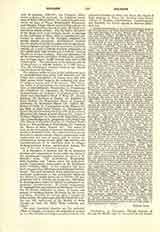

UNIVERSITY OF COLOGNE.—Though famous all through the Middle Ages for its cathedral and cloister schools and for eminent scholars—Albertus Magnus, St. Thomas Aquinas, and Duns Scotus—Cologne had no university until near the end of the fourteenth century, when Urban VI, at the instance of the Town Council, issued (May 21, 1388) the Bull of foundation. The university was inaugurated the following year with twenty-one magistri and 737 matriculated students. Further privileges were granted by Boni-face IX (1389, 1394), Duke Wilhelm von Geldern (1396), and Emperor Frederick III (1442); while special favor was shown the university by Gregory XII (1406), Nicholas V (1447), and Pius II; the last-named pope addressed his “Bull of Retractation” (In minoribus agentes) to the Rector and University of Cologne (April 26, 1463). The university was represented at the Councils of Constance and Basle, and was involved in the controversy regarding the authority of council and pope. It took sides with the antipope Felix V, but eventually submitted to Nicholas V. The Renaissance movement met with opposition at Cologne, though among its professors were the humanists Ciesarius, Buschius, Glareanus, Gratius, Phrissemius, and Sobius. During the same period may be mentioned the theologians Arnold of Tongres and Hoogstraaten, O.P. All these were involved in the conflict which centered about Reuchlin (q.v.) and which did the university great harm. The “Epistolae obscurorum virorum” were directed against the theologians of Cologne. At the time of the Reformation, but few of the professors joined the Protestant movement; the university as a whole was strong in its defense of the Catholic Faith and some of its students, as Cochlaeus and Eck, were afterwards foremost champions of the Church. Failing on the other hand to introduce the reforms needed in its own work and organization, the university declined rapidly during the sixteenth century. The vicissitudes of war, lack of means, and withdrawal of its students reduced it to a nominal existence in the seventeenth and eighteenth centuries. In 1786 the founding of the University of Bonn (q.v.) decided the fate of Cologne, which was unable to withstand its more vigorous rival. The French troops entered Cologne in October, 1794; in April, 1796, the university was closed.
E. A. PACE

